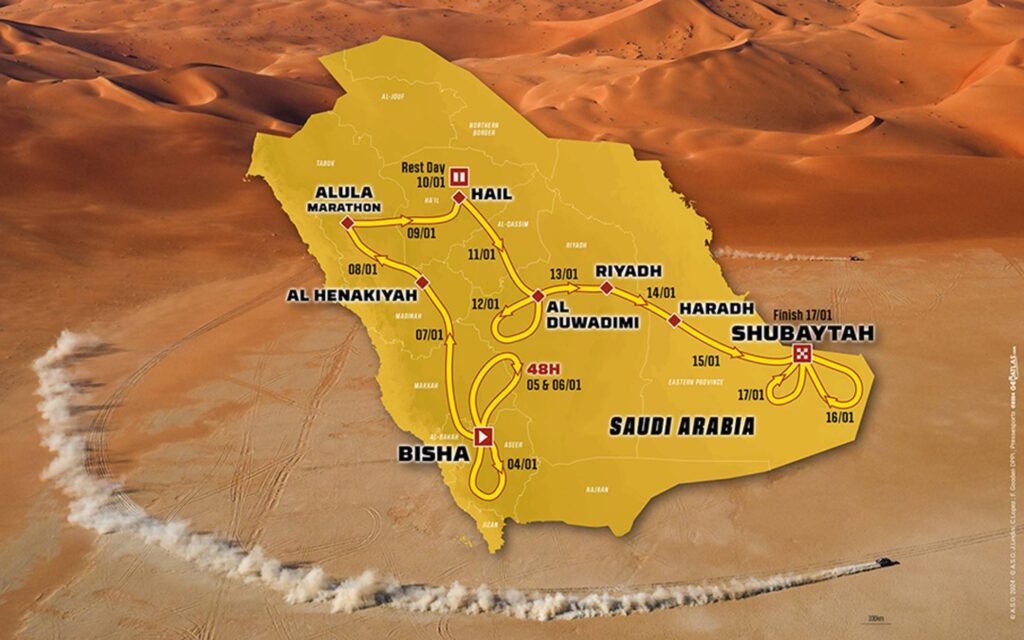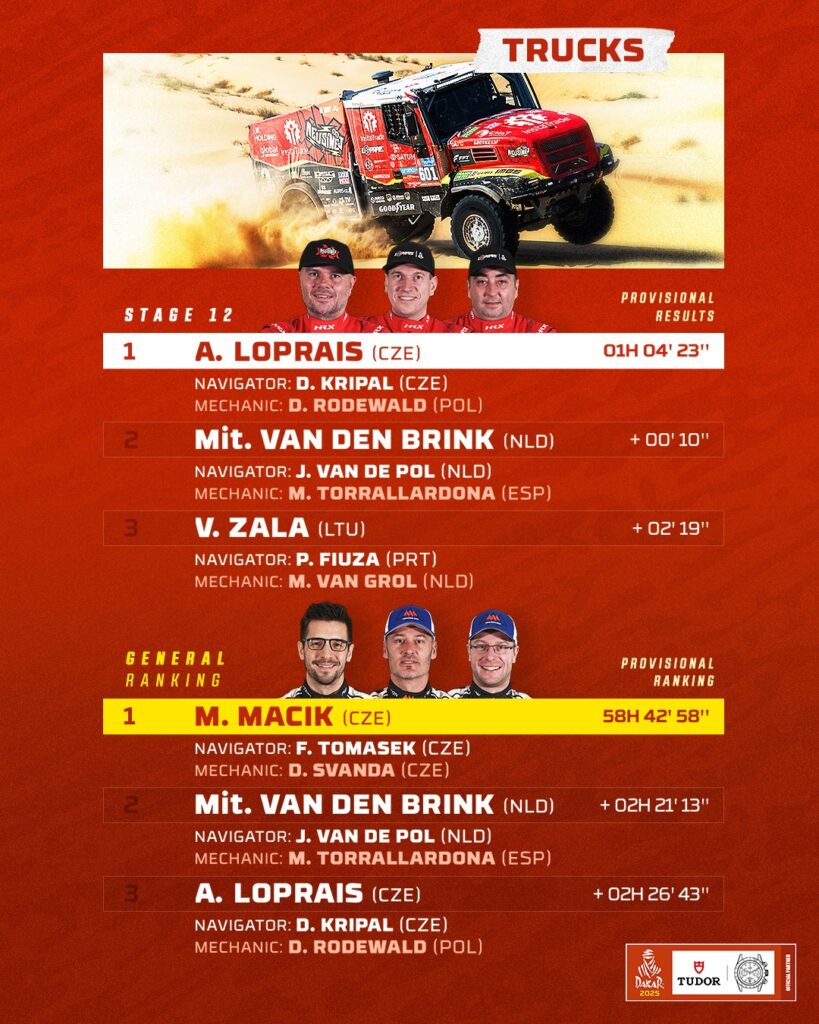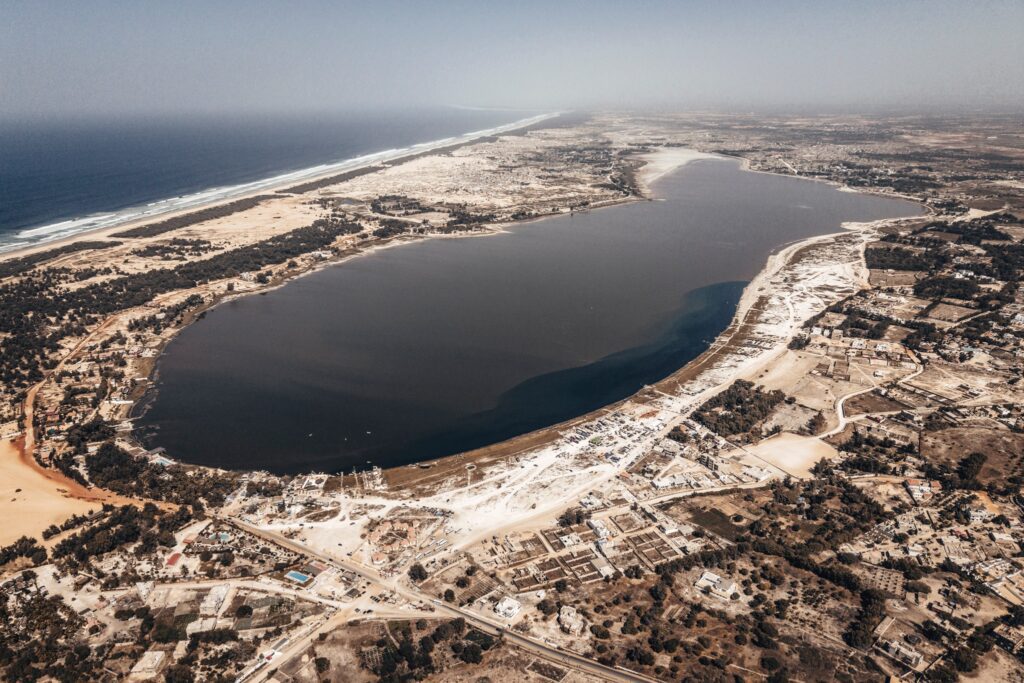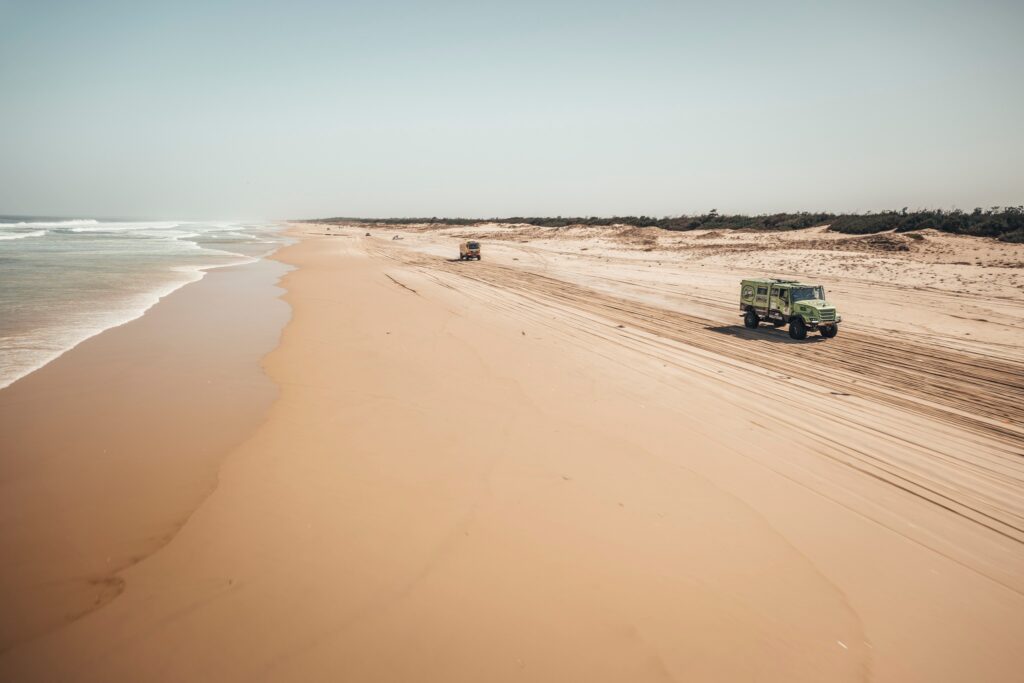175 vehicles completed the 47th edition of the Dakar Rally and the sixth edition in Saudi Arabia in Shubayta. 77 motorcycles (67 of which were Rally 2), 40 ultimate cars, one stock car, 21 challengers, 23 SSVs and 13 trucks reached the finish, but not in Dakar's Lac Rose, having completed the entire 7453 km (FIM) or 7828 km (FIA) route. There were also 52 vehicles that reached the finish using their jokers, while 108 vehicles were forced to retire early from the rally (i.e. 32.24 %).

Race motorcycles witnessed a return to the top step of the podium for KTM, which enjoyed its 20th triumph at the race thanks to the unshakeable Daniel Sanders, who became the second Australian winner at the Dakar after dominating the race from start to finish, just like Marc Coma in 2009.
The Dakar Honour Roll welcomes a new name and a new nationality in the category cars Thanks to Yazeed Al Rajhi: the Saudi driver persevered until his eleventh participation to enjoy a date with destiny and the rare privilege of winning a rally on home soil, as he did in 1994 when Pierre Lartigue triumphed on the Paris-Dakar-Paris route! With Nicolas Cavigliasse (triumphing in the quad category in 2019), who won the class title Challenger, and Brock Heger in the race SSV on the day of his 25th birthday, two new riders also triumphed.
Only Martin Macík, who dominated the category trucks, victoriously defended the title he won last year. The title holder gave a perfect performance. After a three-lap duel with Ales Loprais and newcomer in the truck category Vaidotas Zala, the Czech rider pulled away from the third stage and completely dominated the overall standings after his rivals' accidents on the 48 HR Chrono stage. The MM Technology boss won five stages, as did Loprais, a joint record for this year's event.
Aleš Loprais and Mitchel out den Brink competed for the second place. After 4th place in 2022 and 3rd place in 2024, the young Dutchman, who celebrated his 23rd birthday on stage 9, finished second 5'30" ahead of the Czech rider.

Race Dakar Classic 80 vehicles arrived (compared to 95 starting vehicles). Spanish title holder Carlos Santaolalla triumphed, becoming the first double winner since the category's inception in 2021. Five vehicles entered in the Mission 1000 challenge completed their 1,300-kilometre journey through Saudi Arabia for this second edition. Since last year, progress has been made in terms of range and performance for the KH7 truck driven by Jordi Juvanteny, who won back in 2024, as well as for the hydrogen-powered HySe SSV. The three Segway electric bikes, which were newcomers to the competition, also tested their technology on the Dakar terrain and can look forward to 2026 with gusto.
Dakar Rally without Dakar
The first edition of the legendary rally was started on 26 December 1978. The first editions of the rally from Paris (France) to Dakar (Senegal), with a break when crossing the Mediterranean, followed a more or less similar route until the 1994 edition. However, the political situation and other factors have caused a number of route changes since the 1990s, including the start and finish. In recent editions, the rally route has been in Africa through Morocco, Western Sahara and across the grasslands and deserts of Mauritania. In four editions, the finish has also been moved from Dakar to other African locations. In 2008, the race was completely cancelled because of terrorist attacks in Mauritania a few days before the start.
Since 2009, the rally has been moved to South America, specifically Argentina and Chile, with Peru added in 2012. As of the 2020 edition, the rally has moved to Saudi Arabia.
One of the most successful competitors in the truck category was Karel Loprais, who was nicknamed "Monsieur Dakar" thanks to his six gold medals (1988, 1994, 1995, 1998, 1999 and 2001), four silver medals (1987, 1996, 2000 and 2002) and a bronze medal in 1992.
Africa Eco Race
The original African route was used by the less extensive Africa Eco Race. The organisers aim to continue the spirit of the original Dakar, i.e. more adventure and less commerce. One of the main faces of the race is Czech pilot Tomáš Tomeček (Tatra), winner in 2011, 2012 and 2014.

The 16th edition of the Africa Eco Race ended in style on the symbolic shores of Lac Rose Lake, continuing the tradition of African rallies in the footsteps of Thierry Sabin. After a symbolic stage on the beach with group starts in successive waves (the final order was determined the day before at the end of the Mpal stage), the competitors were greeted by an enthusiastic crowd who came to celebrate the heroes who braved the desert.
This year's competition offered a thrilling spectacle, characterized by minute intervals between the leading drivers in several categories. Nothing was decided until the final stages and the twists and turns kept participants and spectators in suspense. This intensity underlined not only the technical and physical qualities of the riders, but also their mental resilience.
The closing ceremony was marked by strong emotions, tears of joy and hugs testified to the success of the participants. The podium highlighted the exceptional performances of this year's event:
- Motorcycles: Victory for Jacopo Cerutti on Aprilia Tuareg after a fierce battle with Alessandro Botturi (Yamaha), who after thousands of kilometres of racing took second place on the podium just 26 seconds behind the winner. Guillaume Borne (Husqvarna) completed the podium, with the small gaps between the riders testifying to the fierceness of the battles.
- Automobiles: Benoît Fretin's triumph on Century CR6 in a category where every minute counted. Pierre Lafay and Martijn Van Den Broek (Can-Am) fought until the last kilometre for second place, making for a breathtaking thriller.
- SSV Xtreme Race: Pierre Lafay won a fierce battle with Martijn Van Den Broek, who was only 2 minutes and 5 seconds behind the Frenchman. Philippe Champigné / Bruno Robin completed the podium.
- Trucks: Gerrit Zuurmond (Man) won this category by 2 h01'18" ahead of William Van Groningen's Iveco.
- Historic cars: Eric and Tom Claeys in the 73 Toyota Land Cruiser dominated the rally ahead of the Kurt Dujardyn/René Declercq pairing in the Bombardier Iltis. Fabrice and Magali Morin and their Toyota Land Cruiser finished third. A special mention must go to the Brandenburg family, who brought the competition to life with their beautiful Porsche cars. In the two-wheel-drive category, the team of Peter Lehmann/Tom Brandenburg came first ahead of the duo of Marnie Brandenburg/Eric Brandenburg.

Outlook to 2026
This edition once again illustrated the authentic spirit of African rally-rallies following in the footsteps of Thierry Sabin with the traditional finish in Lac Rose. The public turned out in large numbers to celebrate the competitors who had conquered the desert and to share with them moments of emotion and pride.
All eyes are now on the next year. The date for the 2026 Africa Eco Race has been set: on 24 January, the control runs will take place and on 7 February 2026, the finish will be in Dakar.
Dakar.com/ africarace.com/ gnews.cz - RoZ
PHOTO - Facebook Africa Eco Race, Dakar Rally




1 comment
¡La fortuna te acompaña! No pierdas la ocasión de disfrutar de apuestas seguros y emocionantes en 1Win.
1win bypassed